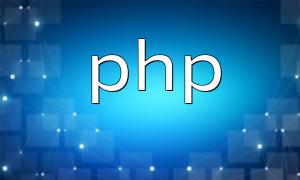With the rapid growth of the e-commerce industry, coupon systems have become an essential tool for attracting users and driving sales. For PHP-based coupon systems, performance optimization is crucial. This article shares practical optimization tips to help developers enhance overall system performance.
Proper database design is fundamental to optimizing system performance. Here are some key points:
Designing efficient table structures: Design data tables based on business requirements, avoiding redundant fields and duplicate data to reduce query complexity and improve query efficiency.
Creating effective indexes: Create appropriate indexes for frequently queried fields to speed up query processing. However, too many indexes can increase write operation overhead, so indexing should be done carefully.
Using caching technology: For frequently queried data, it is recommended to use caching technologies such as Redis or Memcached to reduce database load and improve system concurrency.
Optimizing code can significantly improve system performance and reduce unnecessary overhead.
Minimizing database queries: By optimizing SQL statements and caching query results, the number of database accesses can be reduced, which shortens response times. For example, use batch queries instead of looping individual queries.
Choosing appropriate data structures and algorithms: Proper selection of data structures and algorithms can reduce system complexity and time complexity. For example, using hash tables to optimize query efficiency or using quicksort to improve sorting performance.
Reducing database write operations: Excessive write operations can burden the system. Combining multiple write operations into batch inserts reduces database I/O load.
Cache optimization: Based on data characteristics and business needs, choosing the right caching solution like Redis or Memcached helps to reduce database access and increase response speed.
In addition to code and database optimization, proper server configuration is also essential for improving system performance.
Using high-performance servers: Choosing powerful hardware and operating systems ensures the ability to handle high concurrency and large data volumes.
Optimizing PHP configurations: Adjusting PHP configuration settings, such as memory limits and execution time, based on the needs of the coupon system, can improve system stability and performance.
Enabling CDN acceleration: Using a Content Delivery Network (CDN) to accelerate static resources (such as images, CSS, JavaScript) can significantly reduce load times and improve user experience.
Load balancing and cluster deployment: Distributing requests across multiple servers using load balancing technology enhances fault tolerance and the system's ability to handle concurrent requests.
Performance optimization for PHP-based e-commerce coupon systems involves multiple aspects, including database design, code optimization, caching strategies, and server configuration. Through proper optimization measures, developers can enhance the system's response speed and concurrency capabilities, providing users with a smoother experience. As e-commerce continues to evolve, developers should continually monitor performance metrics and perform ongoing optimizations to meet the growing demands of the industry.








